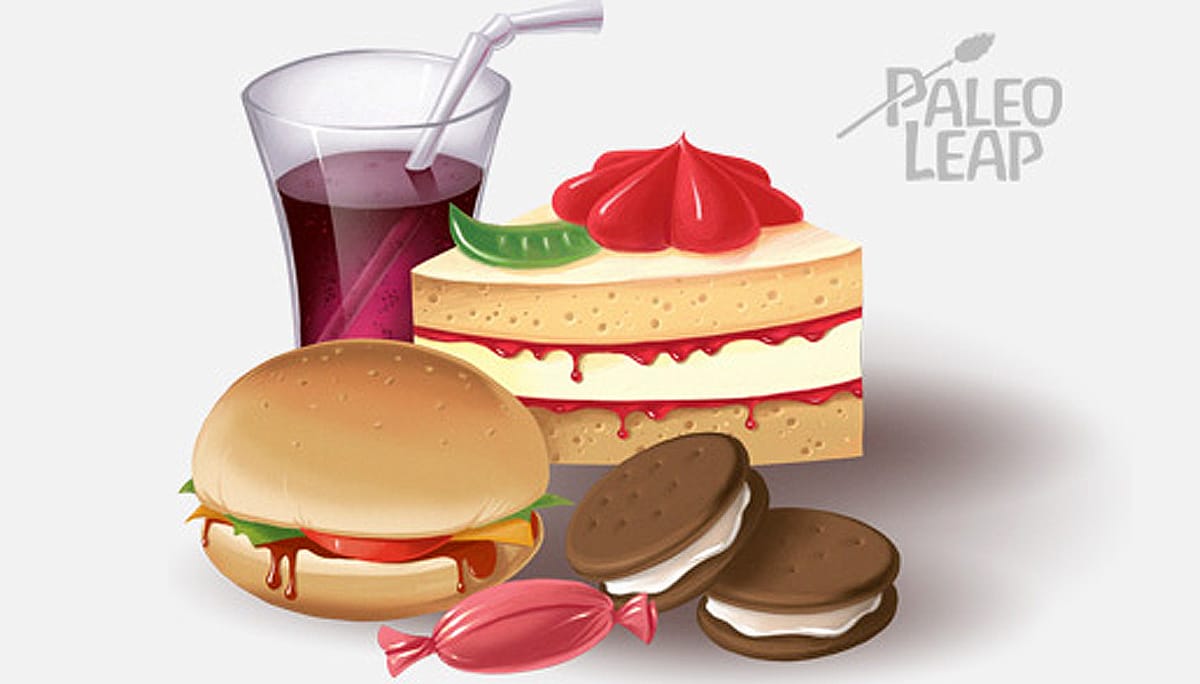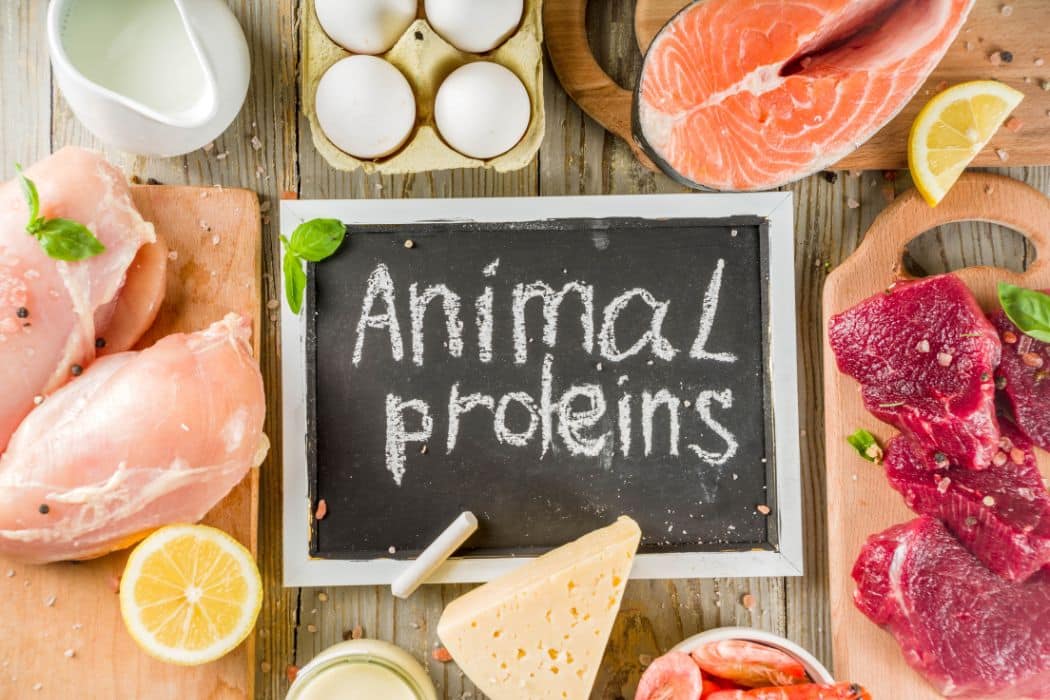Paleo is heavy on the defense of animal fat: lard, butter, duck fat, and tallow are all Paleo-friendly traditional fats that make your food delicious as well as providing plenty of healthy fuel. But what about a closely-related target, animal protein?
Plenty of vegan groups like to claim that animal protein causes colon cancer (and/or obesity, heart disease, diabetes, kidney failure, early death…you name it, PETA thinks eating animals causes it.) But does that really hold up under scrutiny? Actually, if you look at the evidence from scientific studies instead of vegan blogs, the relationships between animal protein and chronic diseases start to look pretty tenuous.
Want the details? Here you go!
The Problem with Epidemiological Research
Proponents of vegan or vegetarian diets like to point to studies showing that intake of protein from animal foods is associated with colorectal cancer or various other diseases. This is called epidemiological research, and it’s interesting, but all it shows is association. Association doesn’t prove anything about causation. Just because two things happen at the same time doesn’t mean one caused the other. Burglary and ice cream sales both increase in the summer, but that doesn’t mean that eating ice cream causes burglary, or that burglary causes people to crave ice cream.
Just a few problems to consider with research finding associations between animal protein and diseases:
- It can’t separate animal protein from everything else found in animal foods (like, say, animal fat, which is an entirely different question and shouldn’t be confused with animal protein if we’re trying to look at protein specifically). For example, this study found that dairy protein and dairy calcium were independently associated with a higher risk of prostate cancer. So does calcium cause cancer now too? Or is there something else in dairy foods? Would the effect hold for pastured dairy? Fermented dairy? Unprocessed dairy in general and not yogurts packed with sugar?

- It can’t separate animal foods from all the other diet patterns they go along with. Anything “associated with” hamburgers is also associated with hamburger buns, and probably also with the huge jugs of sugary drinks most people have alongside their burgers. This study really takes the cake: it looked at colon cancer and compared low-risk Native Africans eating a diet high in resistant starch to high-risk Americans, and found that the Americans had different bacterial fermentation byproducts in their colons. Because obviously the only difference between Africans on a traditional diet and Americans eating an industrial diet is animal protein.
- It doesn’t account for the healthy user bias. Since we’ve all been warned off animal protein for so long, the type of person who eats a lot of it is likely the type of person who doesn’t care much about health in general. You can adjust the analysis for certain factors like smoking or exercise, but there’s no accurate way to adjust for “just not giving a hoot.”
- Dietary measurement isn’t accurate. A lot of epidemiological research relies on food-frequency questionnaires or other extremely inaccurate estimates of what and how much people actually eat. Everyone underestimates “bad” foods (like, say, animal protein), and everyone overestimates “good” foods. If your data on people’s dietary habits is largely imaginary, how can you possibly draw useful conclusions about what diet patterns are associated with what diseases?
All of those are reasons to be skeptical about claims that animal protein “causes” anything. Pay close attention to the wording in the actual studies (as opposed to the newspaper headlines): “associated with” does NOT mean “causes”!
Evidence in Favor of Animal Protein
What’s more, there’s plenty of epidemiological research that shows no association between animal protein and cancer (or other diseases), and even some suggesting it may be beneficial.
Evidence About Cancer
Since cancer is one of the most common diseases that animal protein is supposed to “cause,” it’s worth a closer look. Some studies have found an association (remember: this is not proof of causation!) between animal protein and cancer, but others have found the opposite. For example, this study found no significant effect of total protein, animal protein, red meat, processed meat, poultry, and/or seafood on risk of renal cell cancer.
Other studies have strange and inconclusive results. This one, just for example, found that protein intake was associated with a higher risk of cancer until age 65, with a very slight bump in cancer risk from animal protein specifically. But after age 65, protein was associated with a lower risk. The authors’ explanation for this was a hormone called IGF-1, but the evidence for this is pretty shaky. Zoe Harcombe did a great job taking down the supposed “proof” in this study that protein caused cancer, diabetes, or anything else, and here is a great and very in-depth breakdown of why IGF-1 (the supposed link between animal protein and cancer in that study) doesn’t actually work like that.
A meta-analysis in 2009 found that: “the available epidemiologic evidence does not appear to support an independent association between animal fat intake or animal protein intake and colorectal cancer.” This 2013 review found “no statistically significant associations between total protein intake or LCHP [low-carb, high-protein] diets and cancer mortality…and the only study that also included protein sources found non-significant relations to animal- and vegetable-based protein.”
In other words, the association between animal protein and cancer isn’t even clear, and the only real explanation (IGF-1) isn’t very convincing.
Evidence About Diabetes
OK, so what about animal protein causing diabetes? A higher intake of animal protein is associated with a higher risk of diabetes in several studies, but again, associations and causes are two different things.
This study controlled for some of the potential confounding factors by feeding people with Type 2 Diabetes two different types of meals for 6 weeks:
- Group A got meals with 60% animal protein and 40% plant protein.
- Group B got meals with 100% plant protein.
At the end of the study…
“There were no significant differences between diets for glomerular filtration rate, renal plasma flow, albumin excretion rate, total cholesterol, HDL cholesterol, triglyceride area under the curve (AUC), glucose and insulin AUC, HbA(1c,) blood pressure, or serum amino acids. For both diets, at the end of the treatment periods as compared with baseline, total cholesterol was significantly lower…HbA(1c) had significantly improved …and diastolic blood pressure was significantly lower.”
The study showed no advantage of a 100% plant-based diet compared to a diet containing animal protein.
Other Diseases
Next up is a grab-bag: a few other diseases where even the epidemiological research agrees that there’s no real role for animal protein.

- This study found that both plant and animal protein were associated with lower blood pressure.
- This meta-analysis found a moderately beneficial effect of total protein on blood pressure in some studies, with no special relationship for either plant or animal protein.
- This study found that animal protein was not associated with kidney stone formation. A diet low in overall protein may be helpful for people with existing stones, but that doesn’t prove anything about animal protein specifically.
Animal protein: not actually such a demon nutrient. Really.
Summing it Up
With all due respect to the vegans, there’s just no evidence that animal protein per se causes anything bad. There’s some epidemiological evidence that it’s associated with higher rates of certain problems, but there’s also a lot of epidemiological evidence showing that it’s not actually associated with those exact same problems, and in any case, association proves nothing about causation.
The chronic problem of separating “animal protein” from animal foods in general begs the question of why you would care about separating “animal protein” from whole foods like steak, considering that almost nobody eats animal protein except in the context of an actual food. That’s a great question – ask the people who keep accusing “animal protein” specifically of causing so many horrible diseases. Maybe once we get past the fixation on “animal protein” as the cause of everything wrong in the world, we can do some more interesting studies on overall lifestyle patterns – like comparing a Paleo-style diet rich in red meat to a Standard American diet with the same amount of red meat, to see whether the supposed health risks still hold up. Now that would be some interesting research!





Leave a Reply